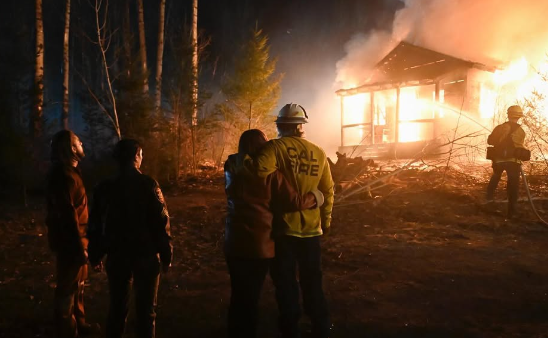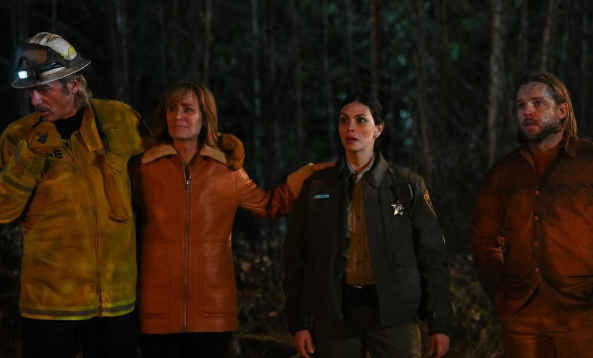
In the fiery, unpredictable world of Fire Country, survival hinges on more than just bravery or physical prowess — it depends fundamentally on the intricate web of relationships forged under intense pressure. The show captures the raw reality of how brotherhood and team dynamics evolve when lives are on the line, and the stakes could not be higher.
From the very first episodes, viewers are immersed in an environment where trust is scarce, and every action can mean the difference between life and death. The series spotlights a unique firefighting team composed not only of career firefighters but also inmates from the Three Rock prison fire camp. This unusual but increasingly common arrangement sets up a fascinating social dynamic: men from vastly different backgrounds and with often conflicting pasts are forced to rely on one another to confront the most brutal natural disasters.
This team is anything but a cohesive unit at the start. Friction arises naturally — distrust from veteran firefighters toward inmates, inmates’ resentment of authority, and personal demons surfacing amid the physical dangers. The show skillfully explores these tensions, making the interactions deeply authentic. Unlike many heroic dramas that gloss over conflict, Fire Country confronts it head-on, showing that the road to unity is paved with struggles, disagreements, and raw emotional exchanges.
Yet, what is most remarkable is how the series balances these moments of discord with powerful portrayals of solidarity and loyalty. It demonstrates that in firefighting, especially in wildfire combat, the bonds between crew members can become the strongest lifeline of all. When the heat is on and smoke blurs vision, it’s the team that keeps each individual alive. The quiet moments where a firefighter silently covers for a comrade, or the shared glances after a harrowing rescue, speak volumes about the strength of these connections.

Leadership within the team adds another crucial layer to the dynamics. Sharon Leone, the composed and experienced Cal Fire Division Chief, exemplifies steady leadership under pressure. Her ability to manage not just the logistics of firefighting but also the personalities, fears, and ambitions of her diverse crew underscores the emotional intelligence required in such roles. Manny Perez, as the supervisor of the inmate firefighters, embodies a different form of leadership — one that mixes toughness with empathy, discipline with understanding. Together, their leadership styles create a balance that allows the team to grow stronger.
The interplay of these personalities, combined with the individual backstories of the characters, creates a microcosm of human resilience. Firefighters may be seen as heroes battling external flames, but Fire Country reveals they are also fighting internal fires: fear, regret, anger, and doubt. Brotherhood, in this context, is not just a social bond; it is a survival mechanism.
The show also highlights the importance of communication — both verbal and non-verbal — in these high-stakes situations. Misunderstandings or hesitations can lead to catastrophe, while clear, calm communication can save lives. This focus on communication echoes real-life firefighting, where teamwork depends on precise coordination and trust that each member will do their part flawlessly.
Ultimately, Fire Country is a tribute to the complex emotional architecture that underpins the firefighting profession. It refuses to romanticize or simplify the experience. Instead, it presents the crew’s brotherhood as something fragile yet fierce, built from sweat, hardship, shared trauma, and mutual respect.
In a world increasingly characterized by isolation and individualism, the series is a powerful reminder of the human need for connection — especially in moments of crisis. The bonds forged on the fireline are not just about camaraderie; they are about saving each other, emotionally and physically.
